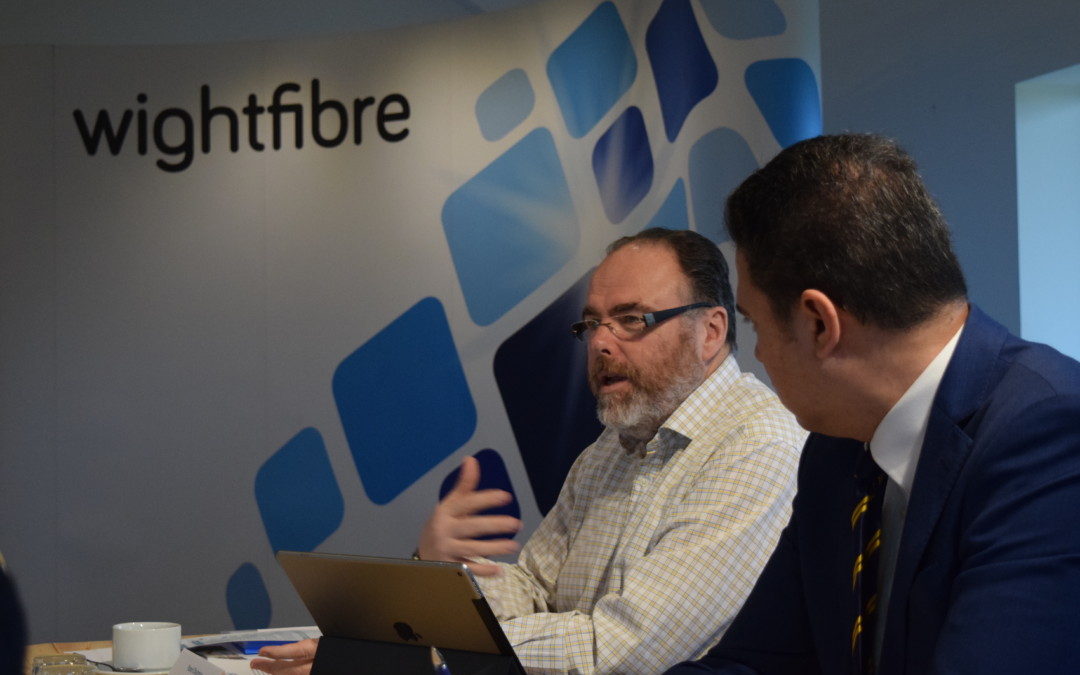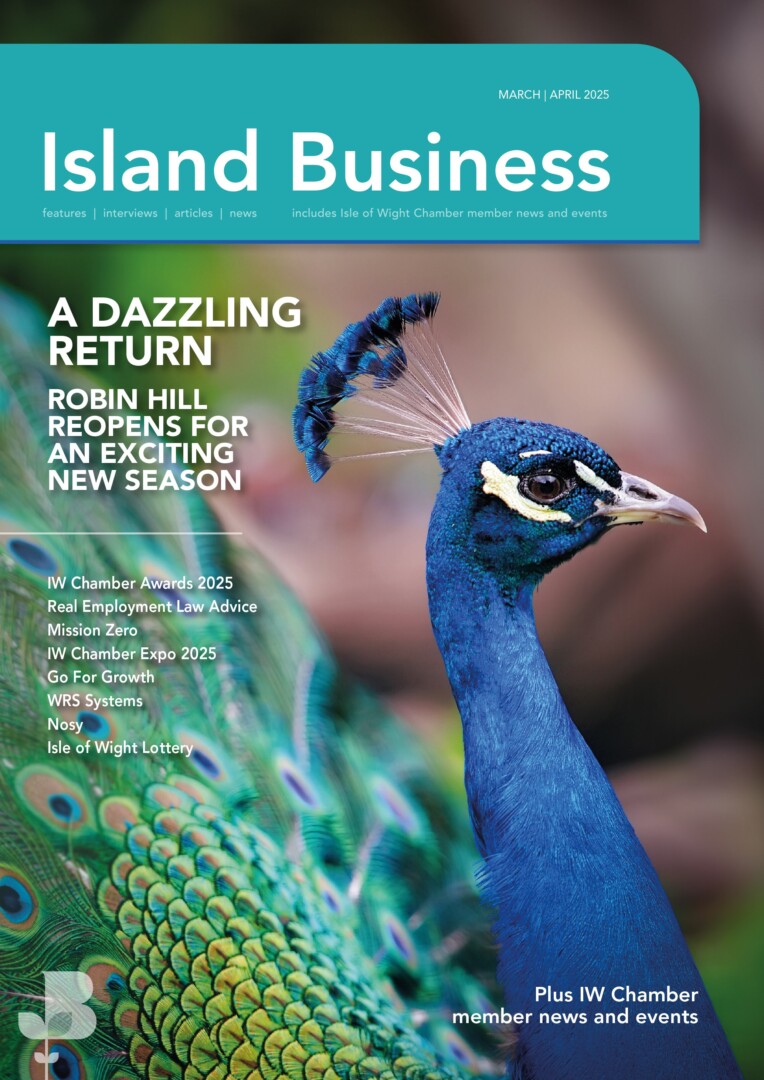Do you know enough about the broadband choices on offer to your business? What does “superfast” actually mean – and how realistic is high-speed broadband for the rural business community? These questions and more were discussed and debated at a recent Rural Broadband Forum, hosted by WightFibre, at Tapnell Farm.
The forum coincided with the publication of the ‘BroadBad’ report from the British Infrastructure Group (BIG), produced by a cross-party panel of 121 MPs. The report claims that 42% of small and medium size businesses in the UK are reporting problems with their internet connection, at an estimated £11bn of cost to the British economy. Of the 650 parliamentary constituencies in the UK, the Isle of Wight was ranked 415th for superfast availability, and a lowly 525th position for average download speed. Superfast broadband availability on the Island was found to be 83% but with 37% of existing connections at less than the Ofcom required 10 Megabits per second.
“Good broadband is like water or electricity,” says John Irvine, chief executive of WightFibre. “It’s really a utility and essential for the success of any business. On the Island we need every business to be well connected and successful.”
In December the Isle of Wight Council stated that “the Island now has close to 98 per cent access to faster broadband”. The Island’s rural fibre broadband project is expected to reach its target of nearly 20,000 Isle of Wight premises in 2016, as part of a multi-million pound rural broadband partnership between the IW Council, UK government and BT. There’s still concern however about levels of service, with questions over how many homes and businesses can access these services and at what speed.
“Despite this multi-million pound investment from the Council, Government and BT, it hasn’t worked,” says John Irvine. “There are thousands of homes and businesses across the Island that still cannot access faster broadband let alone super fast broadband which was always promoted as the aim of the investment with BT Open Reach. Customers have had improvements but not always at the levels that were promised. Some have had no improvement. WightFibre’s wireless networks are still providing an essential service in many rural areas.”
The Broadband report’s low rankings for the Island are supported anecdotally and at the recent forum members provided personal examples of how broadband issues impacted on business.
“Reliability is paramount,” said James Attrill, partner at rural property advisors BCM. “Inefficiencies are becoming less and less acceptable and the interruption to business is crippling. At BCM we have offices in Sutton Scotney and on the Island, just outside Newport. If we get an interruption to our broadband it severely dents our service. We need to have confidence in our connection and that’s the same for every other business too. We have clients with farm buildings converted to offices and broadband is now a deciding factor in the decision to relocate a business to the countryside process.”
Some rural Isle of Wight businesses are making headway, whereas other businesses based within reach of towns are having their own problems. It isn’t a clear-cut situation, and that’s part of the problem.
“Broadband is a huge enabler of business on the Island,” says Jonathan Thornton, managing director of PC Consultants. “Having a good or bad broadband will impact on any business, whichever sector. It isn’t just a rural issue. There are occasions where central locations on the Island don’t have fast connections. Today was all about a level playing field and working to make sure that we have connectivity wherever we choose to live or work.”
The forum’s host venue, Tapnell Farm, relies heavily on broadband as an agriculture and tourism business. Without the option of a cabled connection, they worked with WightFibre to secure decent connection speeds for their guests and visitors, via a wireless transmitter.
“We have to think outside the box and with WightFibre’s wireless we’ve done that,” says Tom Honeyman Brown, partner at Tapnell Farm. “It’s not your traditional cabled broadband but it works. Everyone that comes here expects good broadband and we have to deliver, it’s as simple as that. I view broadband as an integral piece of the puzzle that makes the Isle of Wight more attractive for the future and the infrastructure is catching up with the demand from the mainland.”
Tapnell Farm’s solution employed an unobtrusive mast that didn’t present planning issues and wasn’t cost prohibitive. Not every situation has such an easy fix however.
“There is scope for those with a stake in the rural economy to work together,” says BCM’s James Attrill. “Solutions will require infrastructure, which has to be placed on land. If one business finds it unacceptably expensive to invest then we should be working together to link businesses together collectively. I think today’s meeting has been very encouraging in showing that approach can be possible.”
John Irvine from WightFibre chaired the meeting and welcomed the consensus of opinion regarding the importance of broadband and also a willingness to collaborate in the future.
“There’s a greater awareness now of the challenges that poor connectivity presents to businesses. WightFibre is now the only network operator on the Island that is investing heavily in improving services for rural areas. We welcome the BroadBad report because it confirms what we already knew. Moving forward, businesses have a greater voice in the community. If we can all speak with one voice on the subject, eventually that voice will be heard.”



